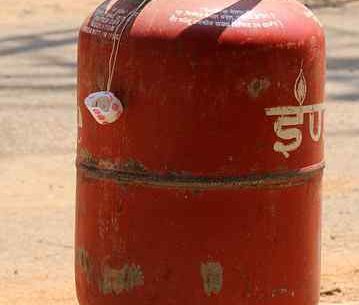The PM Solar Rooftop Subsidy Scheme also known as PM Surya Ghar Muft Bijli Yojana marks a significant stride towards sustainable energy adoption in households.
Introduced to incentivize the installation of solar panels on residential rooftops, this initiative aligns with the government’s commitment to cleaner and greener energy sources.
The scheme aims to make solar power more accessible and affordable for citizens, fostering environmental consciousness and reducing dependency on conventional energy grids.
By providing financial support for solar installations, the program not only lessens the burden on individual budgets but also contributes to a collective reduction in carbon footprints.
This practical approach to promoting solar energy underscores the government’s dedication to a cleaner and more sustainable energy future for the nation.
Table of Contents
What is PM Solar Rooftop Subsidy Scheme 2024?
In the recent Budget 2024-25, the Finance Minister unveiled a novel initiative aimed at fostering solar energy adoption in households.
Dubbed the ‘PM Surya Ghar Muft Bijli Yojana,’ this scheme focuses on installing solar panels in homes to generate power for domestic use and, importantly, generate extra income by selling surplus electricity.
To alleviate the financial burden on citizens, the Central Government plans to offer substantial subsidies directly to individuals’ bank accounts. Additionally, concessional bank loans will be made available, ensuring affordability.
The overarching goal is to empower economically disadvantaged and middle-class households, potentially saving them between Rs. 15,000 to Rs. 18,000 crores annually through access to free solar electricity and the opportunity to sell excess power to distribution companies.
The government aspires to implement this initiative across one crore homes nationwide, signaling a significant step towards sustainable and cost-effective energy solutions.
Objectives of Rooftop Solar Scheme/PM Surya Ghar Muft Bijli Yojana
The Rooftop Solar Yojana focuses on making electricity more affordable, reducing dependence on conventional sources, and fostering sustainable energy practices through the widespread installation of rooftop solar panels.
The objectives of the scheme are:
Free Electricity: Provide 300 units of free electricity monthly to one crore households.
Cost Reduction: Reduce household electricity costs by installing rooftop solar panels.
Energy Independence: Decrease reliance on traditional energy sources by promoting rooftop solar installations.
Sustainable Practices: Encourage the use of clean and sustainable energy through solar power adoption.
Benefits of Rooftop Solar Scheme
PM Surya Ghar Muft Bijli Yojana has several benefits, from saving costs on electricity to creating jobs.
Cost Savings: Potential annual savings ranging from Rs. 15,000 to Rs. 18,000 crores through free solar electricity and selling excess power to distribution companies for electric vehicle charging.
Electric Vehicle Charging: Facilitation of electric vehicle charging using surplus power generated by rooftop solar panels.
Entrepreneurship Opportunities: Creation of business opportunities for vendors involved in the supply and installation of solar panels.
Employment Generation: Job prospects for skilled youth in the installation, manufacturing, and maintenance of solar panels, contributing to increased employment opportunities in the renewable energy sector.
Implementing Agency for Solar Rooftop Scheme
The scheme operates through state-specific entities, set up by central public sector enterprises, with REC (Rural Electrification Corporation) Ltd overseeing implementation.
Households can easily apply for subsidies via a national portal, choosing a vendor for rooftop solar installation. To promote awareness and encourage participation, the government has initiated a widespread campaign.
Interested individuals can register at pmsuryaghar.gov.in. This user-friendly approach ensures accessibility and widespread adoption of the Rooftop Solar Scheme, simplifying the process for interested households.
Also Read: HDFC Bank Parivartan Scholarship Scheme
State-wise Concerned Agencies for Rooftop Solar Scheme
| State Name | Concerned Agency |
| Delhi | Concerned Electricity Distribution Company |
| Haryana | Dakshin Haryana Bijli Vitran Nigam (DHBVN) & Uttar Haryana Bijli Vitran Nigam (UHBVN) |
| Kerala | Kerala State Electricity Board (KSEB) |
| Assam | Assam Power Distribution Company Limited |
| Gujrat | Gujarat Energy Development Agency |
| Himachal Pradesh | HIMURJA |
| Ladakh | – |
| Jammu and Kashmir | Jammu And Kashmir Energy Development Agency (JAKEDA) |
| Rajasthan | Rajasthan Renewable Energy Corporation Limited (RRECL) |
| Punjab | Punjab Energy Development Agency (PEDA) |
| Maharashtra | Maharashtra State Electricity Distribution Company Limited |
| Odisha | Orissa Renewable Energy Development Agency (OREDA) |
| Telangana | Telangana State Renewable Energy Development Corporation Ltd. (TSREDCO) |
| Goa | Goa Energy Development Agency |
| Jharkhand | Jharkhand Bijli Vitran Nigam Limited (JBVNL) |
| Madhya Pradesh | Madhya Pradesh Urja Vikas Nigam Limited (MPUVNL) |
| Puducherry | Puducherry Electricity Department |
| Meghalaya | Meghalaya Energy Corporation Limited (MeECL) |
| Tripura | Tripura State Electricity Corporation Ltd. (TSECL) |
| Tamil Nadu | Tamil Nadu Generation & Distribution Corporation Ltd. (TANGEDCO) |
| Chhattisgarh | Chhattisgarh State Power Distribution Company Limited |
| Uttar Pradesh | Uttar Pradesh New and Renewable Energy Development Agency (UPNEDA) |
Subsidy for Solar Rooftop Scheme
The PM solar rooftop subsidy scheme offers substantial subsidies for solar panel installations, providing central financial assistance as follows:
- 30,000 for 1 kw systems
- 60,000 for 2 kw systems
- 78,000 for 3 kw systems or higher.
To avail these benefits, households can apply through a national portal and choose a suitable vendor for installation.
Furthermore, the scheme facilitates collateral-free, low-interest loans at approximately 7 percent for installation.
A noteworthy initiative includes the establishment of a Model Solar Village in each district, serving as a prototype for encouraging rooftop solar adoption in rural areas.
This comprehensive approach aims to make solar energy accessible, affordable, and replicable across diverse communities.
Who Can Apply for Solar Rooftop Scheme (Eligibility)?
To avail the benefits of the scheme one must meet the fallowing eligibility criteria.
Residency Requirement: Applicants must be residents of India.
Income Criteria: Eligible candidates should belong to poor and middle-income households.
Home Ownership: Applicants must own their residence to qualify for this solar scheme.
How to Apply for Rooftop Solar Scheme?
Applying for the rooftop solar scheme is straightforward process, you can apply for the scheme by fallow the fallowing steps:
Visit Website: Go to the official PM Surya Ghar Muft Bijli Yojana website.
Apply: Click on ‘Apply for Rooftop Solar’ on the left side of the homepage.
Provide Your Details: Select state, district, and electricity distribution company. Enter customer account number and click ‘Next.’
Registration: Enter mobile number and email, follow instructions to complete registration.
Log in: Log in with customer account number and mobile number.
Form Submission: Apply for Rooftop Solar using the provided form.
Feasibility Approval: Wait for DISCOM’s feasibility approval after applying. Upon approval, install the plant via a registered vendor.
Net Meter Application: Submit plant details and apply for a net meter after installation.
Inspection and Certificate: After net meter installation and DISCOM inspection, a commissioning certificate is generated on the portal.
Bank Details Submission: Upon receiving the commissioning report, submit bank account details and a cancelled cheque on the PM Surya Ghar Muft Bijli Yojana portal.
Subsidy Disbursement: Subsidy is deposited in your bank account within 30 days.
Conclusion
Rooftop Solar Scheme, or PM Surya Ghar Muft Bijli Yojana, emerges as a transformative initiative, simplifying the adoption of solar energy for households. By offering substantial subsidies, the scheme not only reduces the financial burden on citizens but also promotes sustainability.
The straightforward application process, accessible through the official website, ensures widespread participation. As applicants navigate the steps, from feasibility approval to net meter installation, the scheme actively engages with them, emphasizing the government’s commitment to clean energy.
Beyond individual benefits, the creation of Model Solar Villages and employment opportunities amplifies the scheme’s positive impact on communities. The success of this program hinges on its inclusive design, empowering diverse households to contribute to a greener and economically viable future.


